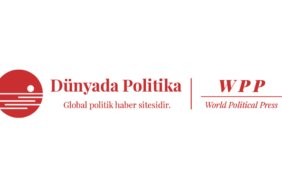Climate Summit in Azerbaijan and Emerging Challenges in Energy Supply
During the 29th Conference of the Parties (COP29) of the United Nations Framework Convention on Climate Change held in Baku, the capital ofAzerbaijan, an important discussion took place among world leaders. Speaking to journalists at the summit, Serbian President Aleksandar Vucic said that countries that buy liquefied natural gas (LNG) from the US could face a major problem in the future. Vucic stated that if Washington cuts the supply chain, these countries will have to demand natural gas from Russia.
“No one in the world knows what to do about energy supply, because in three or four years the US will stop exporting LNG. As a result, they will need it themselves due to increased consumption, the need for artificial intelligence and electric batteries. Then we will all queue up, and those who have banned Russian gas will queue up at Moscow’s doorstep and say ‘restart gas supplies to us’,” he said.
Russian energy giant Gazprom remains Serbia’s main gas supplier. The two countries have reached an agreement on gas exports for the coming winter season with a formula of 6+2+3 million cubic metres per day. The Serbian authorities have stated that Russian gas will be supplied ‘at the most favourable price thanks to the oil formula’. In addition, another long-term gas supply agreement with Moscow is scheduled to be renewed in spring 2025.
Russian natural gas reaches Serbia via the Turkish Stream gas pipeline and the Bulgarian gas transport system. In the coming years, this volume is expected to reach four billion cubic metres per year. However, Gazprom had either partially or completely stopped gas supplies to many European countries in 2022. The company had cut off gas supplies to Bulgaria, Poland, Finland, the Netherlands, Germany and Denmark, citing their failure to fulfil Russian President Vladimir Putin’s demand to pay for gas in rubles and other technical reasons.
Subsequently, deliveries via the Nord Stream pipeline through the Baltic Sea and the Yamal-Europe pipeline through Belarus were terminated, while deliveries through Ukraine were also significantly reduced. Moscow has repeatedly stated that the West is making a serious mistake by refusing to buy hydrocarbons from Russia and that high prices will lead to a new and stronger dependence. It also noted that countries that refuse shipments will continue to buy Russian oil and gas more expensively through intermediaries.







